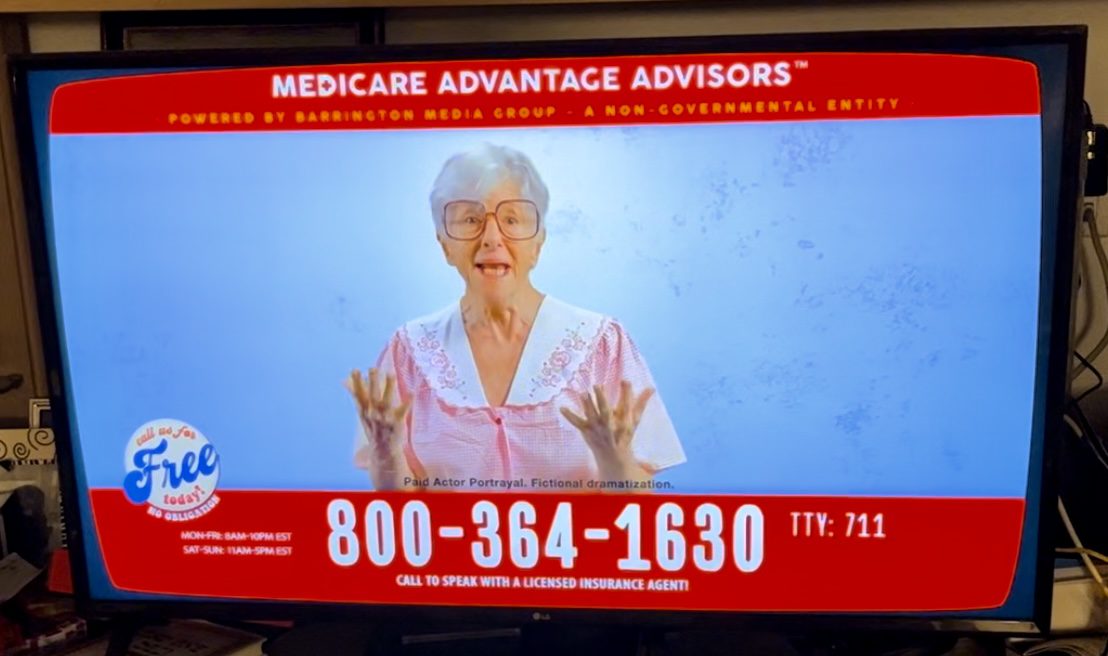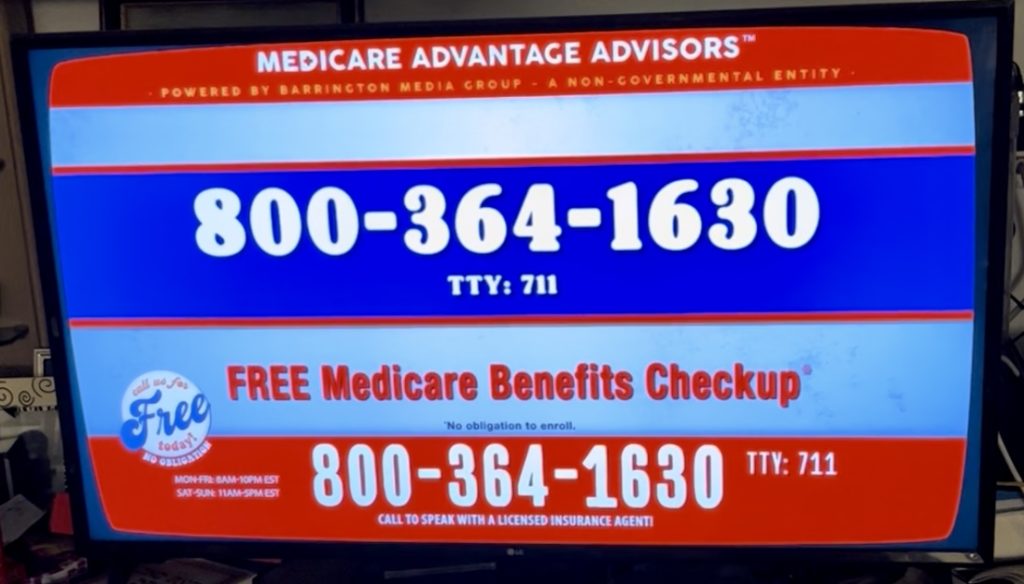Consumer Diary: Some Advertised ‘Medicare Plans’ May Not Be Actual Medicare Plans

Audio By Carbonatix

Martha” wants to know why she has to make the call for information when Medicare should do it. (Screenshot)
Consumer columnist and West Hartford resident Harlan Levy has more than 20 years of experience writing stories about everyday experiences that anyone could encounter.
By Harlan Levy
As I mentioned previously, the Medicare Open Enrollment Period (Oct. 15-Dec. 7) is on, allowing Medicare participants to change Medicare health and Part D prescription drug plans. And that unleashed an incessant bombardment of ads from rival plans by mail, email, phone, and on TV. Some ads clearly state what private insurer they’re representing – United Healthcare, Humana, etc.
Some don’t.
I mean, how many times (too many) have you seen and heard “Martha,” 75, the gray-haired woman on TV in a 2-minute ad who’s a bit “cranky,” complaining that she’s not getting calls about the Medicare Advantage plans available during the enrollment period. “Why should I call?” she asks.
“I’ll tell you!” I shout at the TV – disturbing my wife – “Enough already! Make the damn call!”
As you may know, at the end of this interminably long ad Martha yells, “I’m making the call!”
But maybe she shouldn’t … ‘cause if you look under this deceptive ad’s large-print words “MEDICARE ADVANTAGE ADVISORS,” you find in small print “powered by barrington media group – a non-governmental entity.”

Does this look like an official Medicare message? (Screenshot)
So the ad is not from the federal Medicare program as it seems to imply. Rather, it’s from a private insurance agency angling for your business, offering plans that may not fit your needs. It may not be a scam, but how will you know? And how will you avoid a nightmare?
Medicare scammers often look official, the Federal Trade Commission warns. They pretend to be from or connected to Medicare, or to a business you know. The goal: Steal your information. Don’t let them. Follow these FTC suggestions:
- Never give personal information to anyone contacting you out of the blue – even if the request seems to come from Medicare – asking for your Medicare, Social Security, or financial account numbers. Medicare doesn’t call unexpectedly and doesn’t ask for that information. Hang up. To check if an unsolicited offer is legitimate call 1-800-MEDICARE.
- Report anyone pretending to be from Medicare at ReportFraud.ftc.gov
- Ignore the ads. Get help comparing Medicare costs, coverage, and plans from the State Health Insurance Assistance Programs (SHIPs) and from the official Medicare website, Medicare.gov.
- Check for any changes next year.
- Log in or create an account via Medicare.gov. Then you’ll see drug prices based on any help you get, be able to compare your current plan to others and access and store your drug list.
- Hang up if someone calls claiming to be from Medicare, asking for your Social Security number or bank information to get your new card or new benefits. That’s a scam. Don’t give personal information to a caller claiming to be from Medicare.
- Don’t trust caller ID. These calls can be spoofed to look like they’re coming from Medicare..
Now you know.
Like what you see here? Click here to subscribe to We-Ha’s newsletter so you’ll always be in the know about what’s happening in West Hartford! Click the blue button below to become a supporter of We-Ha.com and our efforts to continue producing quality journalism.



